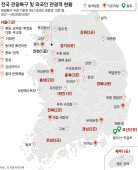The First Goal Is the Charm at the World Cup
The First Goal Is the Charm at the World Cup
Posted June. 23, 2010 12:27,
We lost because we allowed the opposing team to score the opening goal...
This is what national soccer coach Huh Jung-moo said after his team was humiliated by Argentina, 4-1, Thursday. After we allowed the surprise opening goal to the Argentines, we could not use the tactic (defense followed by counterattack) that our team prepared, he added.
The most common excuse from coaches after their teams lost in this years World Cup has been, We lost because we allowed our opponent to score the opening goal.
Statistics illustrate the importance of the opening goal at this years event. The tournament passed its halfway point Monday, with 32 of the 64 matches played.
Teams that scored the opening goal won 20 of the 32 games, with nine of the victories being by one goal. Those that scored the opening goal won by two or more goals in 11 of the 20 wins. There were also seven draws in the 32 games despite one team scoring the opening goal.
In contrast, teams that scored the opening goal lost just twice through Monday. Nigeria blew a 1-0 lead over Greece and lost 2-1 after striker Sani Kaita was ejected for a foul. Denmark also rallied for a 2-1 victory over Cameroon in Group E despite the Africans opening the scoring.
The three remaining games were scoreless draws.
South Korea on foreign soil has a poor World Cup record with one win, five draws and nine losses. In the 2002 World Cup co-hosted with Japan, the Taegeuk Warriors won three, drew one, and lost one in advancing to the semifinals.
On foreign soil, South Korea has scored the first goal just once. It opened the scoring against Mexico in the 1998 World Cup in France but lost 3-1. In that game, Ha Seok-jus ejection for a red card began the teams collapse.
So the opening goal is truly important in light of South Koreas previous performances at the World Cup.
Experts stress the importance of the opening goal for the tactical advantage it brings. MBC color commentator Seo Hyeong-uk said, Every team prepares at least three tactics when they play in the World Cup. The opening goal is the first clue to these scenarios, adding, No matter how well prepared a team is, it cannot use a planned tactic once it allows the opening goal.
KBS color commentator Kim Dae-gil said, A team that gives up the opening goal is restricted in its use of tactics. In contrast, a team that scores the opening goal can use far more diverse tactics.
A team facing tactical restrictions means that it plays in a more risky way. It deserts the tactics it prepared in a desperate bid to score and conducts dangerous plays, only to face the risk of allowing additional goals.
creating@donga.com noel@donga.com
Headline News
- N. Korea redefines S. Korea as ‘hostile state’ in revised constitution
- Samsung develops graphic DRAM with industry-leading capacity and speed
- Three questions allegedly leaked via text message during Yonsei Univ. essay test
- China to inject 340 trillion won in loans to support real estate sector
- Dodgers beat Mets to take 2-1 lead in NLCS







